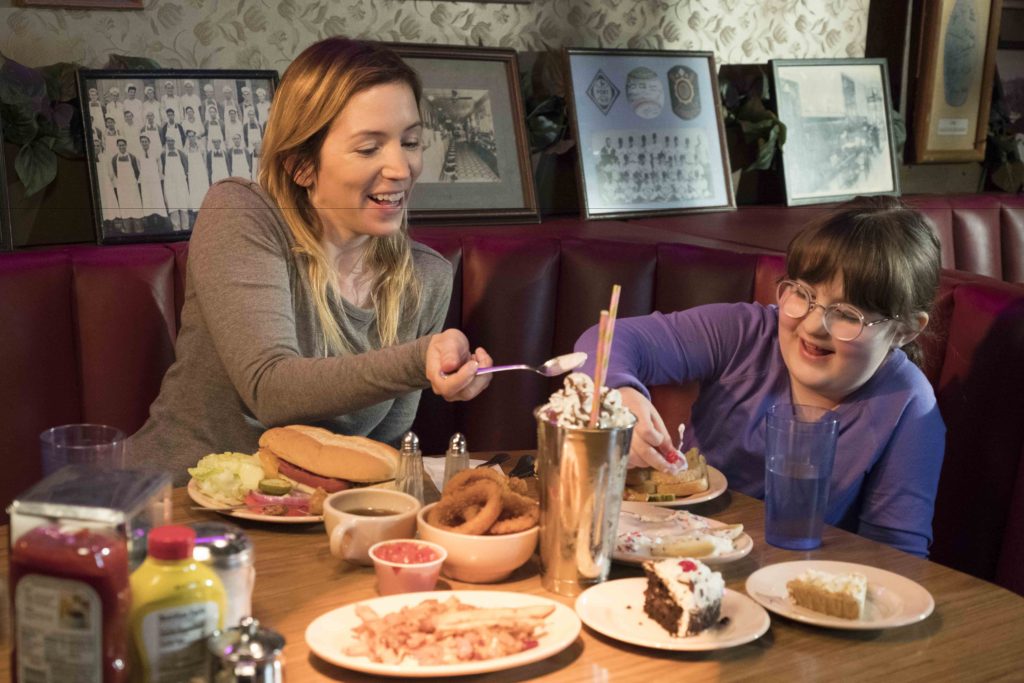Stephanie Turner is an actress, writer, and director. Her acting credits include “First Man,” “Monster-in-Law,” and “Surrogate.” She is developing a television project based on a blog she created, “Football Brat,” as well as other TV and film projects. “Justine” is her directorial debut.
“Justine” will premiere at the Newport Beach Film Festival on May 2.
W&H: Describe the film for us in your own words.
ST: “Justine” is the story of a single mom of two, Lisa, who is forced to move in with her father in-law after the death of her husband. Desperate for work, she reluctantly takes a job as a nanny for Justine, an eight-year-old girl with spina bifida, leaving her father-in-law to be the sole caretaker for her kids. At first an unlikely pair, Lisa and Justine end up helping one another overcome personal obstacles. It’s a film about grief, overcoming adversity, and ultimately, people coming together.
W&H: What drew you to this story?
ST: The original idea I had for the story began with the relationship between a girl — who is sheltered from society by everyone — and her new nanny, who refuses to shelter her in the same way. Then I kind of worked backwards and built the story from there.
W&H: What do you want people to think about when they are leaving the theater?
ST: I would like them to think about the way they see people and the way they treat people.
W&H: What was the biggest challenge in making this film?
ST: There have been a lot of challenges along the way. I wrote the script almost six years ago, so a lot went into getting us to a place where we could actually make the movie.
In terms of production, working with kids was a challenge because of their limited hours. We had to be extra thorough with our planning and scheduling.
W&H: How did you get your film funded? Share some insights into how you got the film made.
ST: We were privately funded by individual investors. My husband and I started a production company and went out to investors with whom we had existing relationships. My husband has a background in finance so his skill set was very helpful in the process of setting up our financial structure.
W&H: What inspired you to become a filmmaker?
ST: My love for stories and my desire to tell them is what made me want to make movies. I think film and television is a way to learn about people and connect with people and circumstances that you would perhaps not normally experience.
W&H: What’s the best and worst advice you’ve received?
ST: I received a lot of notes before we went into production, such as “remove one kid from the script — it’s going to be too hard to shoot an indie with three minors,” “it’s going to be so difficult to find a girl to play Justine,” and “it’s going to be too much for you to act and direct: you should think twice about that.”
Honestly all of those notes — even though they might have initially sent me into a panic — ultimately helped me because they made me prepare more for the challenges we might face given the circumstances.
W&H: What advice do you have for other female directors?
ST: Just keep going. If you believe in a project or idea, you have to keep fighting for it because you’re the only one who will. You can’t wait for someone else to be the champion for your project — you have to do it.
I know it’s hard. I have felt how hard it can be. You just need to keep going.
W&H: Name your favorite woman-directed film and why.
ST: There are so many great films directed by women, and I’m not someone who has a “favorite” movie so this is a difficult question. There are the classics from my youth like Penny Marshall’s “Big” and Gina Prince-Bythewood’s “Love & Basketball.” Then there are the indie films that have inspired me in recent years, like Ava DuVernay’s “Middle of Nowhere” and “My Happy Family,” co-directed by Nana Ekvtimishvili. I could go on and on!
W&H: It’s been a little over a year since the reckoning in Hollywood and the global film industry began. What differences have you noticed since the #MeToo and #TimesUp movements launched?
ST: I was making the movie this past year so I feel like I’ve been a little isolated in my own world of production/post-production. I haven’t been out pitching or taking meetings with people.
But I do feel the conversation has definitely changed for the good. It seems there are more initiatives and programs to bring opportunities to women. I hope it continues and we see more work for women in the top creative positions.







